|
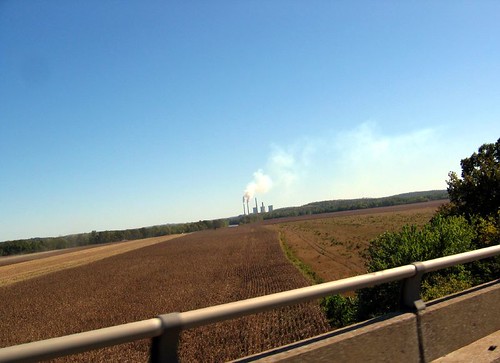
Muhlenberg Co., KY coal-fired power plant.
(*photo credit)
February 1, 2012 Fossil Fuel Still Favored
over Renewable Energy
We
observe the lengthening days and the warmth of the solar rays beginning to
penetrate our daylight hours. The desire to use more renewable energy strikes
us most deeply in mid-winter. In saying this we ask, "What progress is being
made in challenging global warming through favoring renewable energy (solar,
wind, geothermal, hydro, tidal, and certain biofuels). Certainly wind turbines
are being built globally in unprecedented numbers.
Environmental awareness is
fairly high. Renewables are talked about, but naysayers highlight noise impact
and birds killed due to wind turbines, minor habitat disturbances, and major
bankruptcies within solar projects. On closer inspection we discover that these
difficulties are minor in comparison with the severe impacts of fossil fuels:
elevated carbon dioxide levels, escape of natural gas (with methane at 23 times
CO2 impacts), mountaintop removal, toxic substances loosed into the
environment, unprotected fly-ash piles, gas and oil pipeline breaks, and oil
spillage in deep water drilling and waterway transportation. Unfortunately two
facts constantly stare us in the face: global fossil fuel consumption is
expanding, not contracting; current global assistance is six times more
favorable to fossil fuels than to renewable energy.
In
2010 (the last year with complete statistics), fossil fuel use expanded by over
5%, with coal-fired powerplant construction in China and India setting the
pace. If continued unabated, this will lead to a projected seven degree F
temperature rise by 2050 and a global climate change catastrophe with
accelerated ice sheet melting, ocean current changes, and water level rises that
cover highly-populated shorelines. Japanese, European and even North American
concerns will bring some declines, but not to compensate for the rapid rise in
consumption by emerging economies.
The second disturbing fact (and one easier to correct) is that globally fossil
fuel in 2010 got six times more subsidies than renewables (Reference:
International Energy Agency, "World Energy Outlook"). Much of this is aid ($409
billion) to customers of gasoline, gas, and coal, reflecting rising energy
prices. This is in contrast to $66 billion for renewable energy sources and
electricity supplies. These immense differences result from fossil fuel
subsidies and tax breaks dating back to the Second World War. However, in 2009
the Group of 20 pledged to eliminate their own national assistance to
coal, gas and oil. These very same pledged nations spent $160 billion to assist
in fossil fuel production and consumption -- with over one-quarter from Saudi
Arabia alone. The world is facing immense difficulties, and word is out even
though deniers consider human causes to be insignificant with regard to climate
change. Social addiction exacerbates the picture.
Prayer:
Lord, teach us to know the signs of the times, to see how we have damaged our
fragile Earth, and must now repair it.
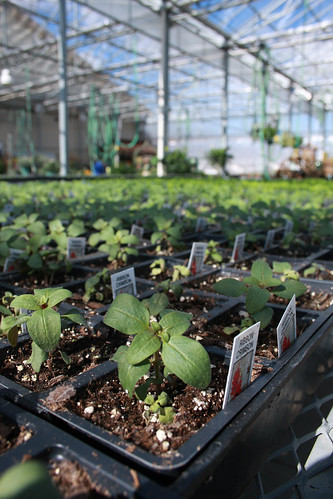
Preparing for the coming Spring.
February 2, 2012
Give Light to All in Many Ways
Yes, with you is the
fountain of life;
by your light we see
the light. (Psalm 36:9)
On
Candlemas Day, it is fitting that we review the many ways we can do more
than receive light from sources; this is an exercise in ways we can give and
share light with all around us:
1.
Encourage others to use their talents better and thus benefit from the
many opportunities at hand;
2.
Teach someone or a group about an area in which they need to be educated
such as how to garden or how to handle drugs;
3.
Lighten up the meeting with a sense of humor when the mood of many in the
room is more or less depressed;
4.
Show how energy conservation and choice of proper lighting (fluorescent
or LEDs) can easily brighten a house;
5.
Go outdoors with others and participate in full spectrum sunlight (if
shining today), thus improving our disposition;
6.
Enliven the gathering by some music or singing. Make this a pre-Lenten
Marti Gras celebration;
7.
Give a light touch to meals or the house by rearrangement of stacked up
materials and furnishings;
8.
Tell a story to lighten the spirits of those around you; it is a perfect
time to listen to something new;
9.
Relate the potential of solar PV panels to offer luminescence at no or
very low cost to the domestic environment;
10.
Read an informational book and become personally enlightened so that the
light can be shared with others;
11.
Use a social media outlet to share insights;
12.
Note times of inspiration and record them, for the lights of our insight
shine with ever greater intensity;
13.
Pray for the light to see good and avoid evil;
14.
Let some house lights burn as a welcome to the wayward;
15.
Light a candle and do not curse the darkness; and
16. Keep extra candles
in case the electricity fails.
Prayer:
Lord, you are the light showing the way, inspiring our spiritual growth, and
helping us burn with desire to come to you.

The Mourning Dove (Zenaida macroura).
(*photo by Sally Ramsdell)
February 3, 2012
Harbinger of Spring: The Mourning Dove
They call you Zenaida macroura, how sad.
They brand your song
mourning, that's bad.
Little is it known by
the naming folks
That you, gray bird, have other strokes.
First you're a dove,
global sign of peace
Bringing back
olive branches on release,
But few olives grow here
you understand,
You're not nesting in a peaceable land.
Instead,
you're hunted game by my macho cousin,
Who loves to bag
you by the dozen.
Astounding,
since cooked you're hardly a bite,
It's body counts
that bring delight.
I'd
settle that mourning describes your coo
Except that you have another service too.
You
break bitter winter's endless sting,
Great and glorious
harbinger of spring.
When
I heard that sound on February second,
How glorious it broke
the silence, I reckon.
Witch
hazel, groundhog, wooly worm, others?
Mourning doves, if I had my druthers.
See
February 8, 2007 for the first poem entitled by the same name, "Harbinger of
Spring."
Prayer:
Lord, Give us the grace to observe nature in its fullness and to learn from
all. Give us the courage of the mourning dove, a creature willing to announce
the spring in a public way. May we be encouraged to proclaim the coming of the
Lord.
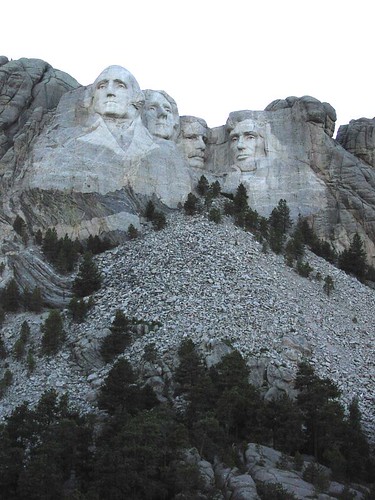
Mount Rushmore, near Keystone, SD.
(*photo credit)
February 4, 2012 Honor Our
Constitution by Initiating a Second One
The
U.S. Constitution is the oldest one in continuous use. We can best honor this
document by making it more relevant in the age of globalization. A constitution
is the special place where we can address disparity of wealth, the greatest
danger today to our democratic structure. Consider these ten points in
preparation for a Second Constitutional Convention:
1. Express the basic
right of all people to life from birth to death. This includes the basic
right of individuals to health facility access. All species have a right to
corporate life.
2. Promote a realistic
dream that all our sisters and brothers on this planet will go to bed
tonight with a full belly, under a decent roof, and with basic security.
3.
Encourage the democratic process, wherein all participate in determining
their own destiny, and through which they can assist non-violently in taking
back what is rightfully the commons.
4.
Champion equal opportunity for work and for earning a living. It must be
enshrined that our government is the ultimate employer; we need not await
private initiatives that take from a pool of human beings who are regarded as
economic commodities.
5. Contribute to Global
Development Funds to alleviate world hunger, lack of housing, and major
health problems.
6.
Restrict incomes to a determined amount dependent to some degree on the
cultural conditions of time and place.
7.
Transfer portions of a military budget to health facilities for the
health security of people in poorer parts of the world.
8.
Promote a spiritual profit-motivation by discouraging a material profit
motivation -- for, in this needy world, material profits for some are at the
expense of others.
9.
Tax excessive wealth so that there are limits to what individuals can
retain. At the same time, reduce the tax burden on lower-income people, but
retain taxes on luxury items and on items and practices linked to
substance-abuse such as alcohol, tobacco, and tanning salons. Commit our
government to help remove tax havens for the wealthy and redistribute this
wealth to the needy.
10.
Organize local groups to discuss these matters and to prepare for the
eventuality of some being delegates to a future Second Constitutional
Convention.
Prayer:
Lord, give us the courage to support needed changes as a way to improve the
quality of life and to heal our wounded Earth. Inspire us to speak in
favor of this change even at the risk that some compromise will be needed.

Ice coating on Queen Anne's Lace, Daucus carota.
(*photo credit) February 5, 2012
Job's Trials Are Ours as Well
Remember that my life is but a breath... (Job 7:7a).
In
the book of Job we discover desolation on the part of one who suffers. However,
this is not specific to one person; rather, all of us suffer desolation at one
or other time through awareness of our mortality and our unfinished work. Some
amount of short- or long-term depression is in each person's life. It is true
when looking back as much as looking ahead; our services undertaken were not
perfect and this pains us. Lent is an opportune time to review our own
approaches, and reaffirm that the Lord is willing to accept us and forgive us
for our past performance. In God alone we trust, our remedy for desolation.
Job discovered this; so ought we. That ever-shortening span of life ahead makes
the reality of Lenten review all the more imperative with each passing year.
Focusing solely on ourselves apart from God adds to our desolation.
Group
desolation may prove more problematic than remedying our individual conditions.
In part this is because our consumer culture captivates so many with a social
addiction that is hard to overcome. For many, the more that is purchased or
consumed, the better, and that material appetite for more is insatiable. The
treadmill of goods gained, maintained and sought is self- perpetuating.
Saint
Paul (I Corinthians 9) says he has made himself all things to all people in
order to save at least some of them. He accepts that his work has some benefit
and feels the need to act accordingly. We join Paul and find hope in the power
of the Lord's Resurrection. Will we succeed? The question haunts us, for the
tasks needed to save our wounded Earth are daunting. Many people strive to
become materially secure, refuse to change behavior, and fail to conserve
limited resources. Along with Job we search for an answer and discover that
true success is rooted in God's designs, and that trust must emerge when we see
and understand the futility of our own limits. Belief in the Resurrection is to
place a sure promise at the heart of our efforts to bring people to see the
problems facing us -- and to act accordingly. The Lord assists us to break
through the fog of desolation. Now we are able to serve God and bring a
promising and renewing spirit to others.
Our trials in these troubled
financial times are real. We stand before God as an addicted people who think
that more and more material things will satisfy us. However, painfully we
realize that a new economy must be in the offing, for material greed is
insatiable -- and the first steps at this realization often come through
realizing the causes of desolation. Jesus implores the Father for help; so
ought we when we are down and out. Lent helps us discover the ultimate
spiritual frontier.
Prayer:
Lord, you heal the brokenhearted and bind up our wounds. Help us gain the
patience it takes to endure these times and circumstances with the sure trust
that you will conquer all.

Dark fishing spider, Dolomedes tenebrosus.
(*photo credit) February 6, 2012
Confrontation as a Possible Christian Virtue
I have come to bring
fire to the earth, and how I wish it were burning already! (Luke 12:49)
Why am I so
confrontational? My answer is that it is neither my particular personality nor
a sense of dysfunctionality, but because I am a Christian. In fact, I regret
not being more confrontational on various occasions. The Luke quotation above
is on the wall in front of me; it strengthens my resolve. It is the
countermeasure to all who seek to caution that my passion for justice ought to
be toned down in order to retain benefactors. One doctor once suggested that
certain anti-depressants could help tone down social activists, and he even had
a name for the malady. Rather, my prayer is that more would burn with the fire
of Jesus.
All
too often the virtues of people, and especially Christians, include how patient
they are, how tolerant of what others do, and how much they are supportive of
the current system. Amazingly, Jesus does not extol these so-called virtues.
Some will remind us that Jesus says to render to Caesar what is Caesar's, but
this must be seen in the political context as a method used to trick Jesus into
affirming one or other competing systems -- that of Rome or that of Jerusalem.
He says to give each its due in taxes, etc. He does not say to promote the
Roman Empire or current religious practice for which he has strong words. Jesus
does not mince words in speaking of the rulers -- "Tell that fox..."
We find Jesus willing to confront others, whether personal or the system itself.
Jesus calls the Scribes and Pharisees hypocrites for preaching one thing and
acting in other ways. Jesus takes a whip and drives out the moneychangers, and
cites the passages that this is to be the house of prayer FOR ALL THE PEOPLE.
His defense of the commons has a minority of today's Christian followers,
especially from the more "prosperity-minded" sector of Christendom. Will these
in the silent majority learn that saying nothing when democracy needs defense is
not a Christian virtue -- it is conforming to the system of mammon and not
following the gifts of the Spirit within us? People lack essential services and
their rights are violated -- and those who are on fire must say so.
Wealth cannot be condoned when destitution abounds. Again and again, we must
raise the issue: why not share the wealth that is accumulated and is not being
used. If the wealthy are unwilling to share, or to pretend that this is what
keeps an economy running (even while dysfunctional), then citizens must take
matters into their own hands. Christian virtues must come into play, namely, to
take non-violently what is rightfully ours. Downsizing the rich affords them a
better chance for salvation. Overturning the tables of moneychangers hurts no
one physically, only economically. Such actions can arouse opposition. Ask
Jesus.
Prayer:
Lord, allow us to confront the establishment and to do so with heart, lips, and
arm; let our actions be loving and public.

Venison and pork sausage meatballs.
(*photo by matthewf01@flickr, Creative
Commons)
February 7, 2012 Deer, Venison, and Hungry
Neighbors
Recall
that today is Charles Dickens' 200th birthday.
When
we see people who lack nutritious food and then observe wildlife eating and
bounding about, we add two and two together, "Eat locally-grown deer meat."
Venison is delicious and nutritious; it is organic and inexpensive if you are a
good hunter. Though mentioned in the past, we need to focus more directly on
the subject of wildlife as food, because food prices rise and nutritious food is
beyond reach of poor folks.
Harvesting
deer is similar to the practice of poor Africans in their search for protein
sources from "bush meat;" the big difference is that much of African wildlife is
in sharp decline and even endangered. Here, deer (which I never observed
locally when I was young seven decades ago) is now virtually ubiquitous. A
major rural, suburban and even urban complaint in virtually every part of the
continental U.S. focuses on deer. Wildlife is graceful, beautiful, and
plentiful, and can be pests that enjoy chomping on shrubs and flowers. All
said, deer preferences are finicky. In fact, using hot sauce or sprays will
keep them away from specific flora, but only until rain washes away the agent.
Definitely
these animals are hard to divert, though dogs barking will keep them at bay for
awhile. Deer are smart and adaptable; keen observers in infested areas talk
about seeing evolution at work among these animals. Deer platforms and blinds
have been fashionable in the past, but recent generations of deer survey the
platforms to make sure no hunters are present before entering an area. Smart!
However, these animals find busy highways puzzling. They can cause considerable
damage when deciding to cross at the wrong time and are subject to frequent
encounters with speeding vehicles. Appalachian roads are littered with their
bad decisions.
Amid
deer proliferation, an answer to human hunger and animal pest control is
harvesting. The hunting season could be prolonged to provide meat as venison
sausage. At this writing, I expect guests for dinner this evening; the main
course will be venison stew much like the burgoo mentioned on December 17, 2011,
except the Crockpot contains a single type of wildlife. The gamey smell/taste
of venison is softened by herbs such as oregano, bay leaves, or thyme. Also
added are fresh parsley, collard leaves, chopped carrots, sweet peppers, corn,
cabbage and vegetable juice. As the cooking progresses, dehydrated potatoes are
added as a thickening agent. Venison sausage is also excellent with scrambled
eggs, and in various stews and soups of infinite variation. America's
harvestable deer population is over ten million and growing; at least one-fifth
could be harvested each year without noticeable decline (one pound venison per
American poor person).
Prayer: Lord, allow us
to harvest Earth's bounty, and to do so with respect; let us be grateful for our
food supply.

Two white oaks, gracing the skyline, Anderson Co., KY.
(*photo credit)
February 8, 2012 Is Wealth
Incompatible with a Strong Democracy?
Why quarrel with wealth?
Isn't it because in this world of haves and have-nots, the disparity of wealth
damages the democratic structure of our society? Wealth is commonly defined as
the abundance of valuable resources or material possessions. Secondarily,
wealth applies to entrusted materials, personal talents, or spiritual
attainments. The more materialist context really has no universally agreed
definition because it is partly dependent on what is of "value" to a particular
culture or time. Democratic systems demand control over acquired or retained
wealth in the form of wealth distribution; a right to higher quality of life
exceeds a right to excess property by a privileged few. Those who defend the
right to immense personal wealth argue in many ways:
"Don't you realize that
prosperity Christianity and blessings of wealth manifest divine favor?"
Hardly so, for in reading Scripture we find God's favor is always with the poor,
and so should ours. Prosperity in a world of unjust social conditions is a mark
of false prophecy and should be exposed as such. The struggle involves
rejecting the "nobility of wealth" in a democratic society where extremes are
intolerable. We who trust in the power of God's victory in Christ seek a
redistribution of wealth for the Common Good -- and ultimate victory.
"Wealth
shows the plenty of the Creator." No doubt when wealth theoretically means
an abundance of resources then the bounty of God's gifts is recognized.
However, when wealth means what is accumulated and controlled by privileged
people then this bounty becomes restricted to some and not others. The greater
demonstration than material wealth is the wealth of a democratic will of the
people to control and distribute bounty to those in need -- and this also
expresses the gifts of the Creator.
"The
wealthy are worthy of honor." This has been the generally accepted
philosophy of royalty in times past, but hardly that of a republican form of
government. Honoring private wealth no matter how obtained and retained is
ill-conceived and leads to breakdown in respect for all forms of government, for
it gives excessive power to the ones with wealth. On the other hand, the
wealthy have a duty to share excess, and citizens must see that this occurs.
The right to livelihood using this wealth extends to adequate nutrition and also
to accessible health facilities and to educational opportunities for all people.
"The
wealthy will conquer you." A temptation exists in our minds to stay silent
and dare not question wealth for fear of losing our support from those who
otherwise like the ministry that we undertake. Fear of retribution from the
wealthy is the funders' blackmail; keep silent about their holdings no matter
how unjustly they were obtained or they will withhold funding from you.
Prayer:
Lord, help us save the wealthy from themselves by turning our talents to
liberating them from their material chains.
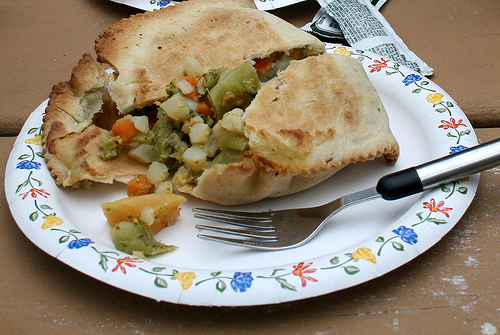
The "Pasty," with potatoes and other veggies. An ethnic Cornish meal.
(*photo credit)
February 9, 2012
Champion the Humble Potato
Finally,
after 2,131 contributions to this website, do we venture to that prolific,
tasty, and multipurpose root vegetable called the "potato." Do we take
Solanum Tuberosum for granted?
An
historic moment: Potatoes are truly versatile; they are highly productive
over a wide temperature range. The high Andes is the home of a wide variety
(5,000) of potatoes of various sizes, shapes, colors (white, yellow, brown,
shades of red, tones of blue and purple), and tastes. See Charles Mann, "The
Eyes Have It," Smithsonian, November, 2011, pp. 86-106. The humble
potato started in the Andes and was tamed by clever inhabitants, since early
varieties have toxic substances that are controlled by clay. With the Spanish
conquest, the potato was introduced to Europe where, in historian William
McNeill's words, "By feeding rapidly growing populations, [it] permitted a
handful of European nations to assert dominion over much of the world between
1750 and 1950." The monoculture of cloned potatoes (slices and not seed yield
new ones) made crops more susceptible to potato blights and the Colorado beetle,
which were treated with the first chemical pesticides.
A
prolific crop: Tubers are staple crops that when compared to grains are far
more productive; the underground product is not subject to being in a head of
seed subject to the rain and wind when in the ripening stage. Potatoes are
adaptable to a diverse variety of weather and soil conditions. The yield can be
upward to 10,000 to 12,000 kilograms per acre depending on climate, weather, and
availability of nutrients. In comparison to grains, the calorie per acre
content is three or four times more. It was these yields that allowed the vast
expansion of the population of Ireland in the 19th century, until the awful
potato blight of the 1840s from which the population has not yet recovered.
A
culinary delight: Potatoes offer creative cooks a wide variety of outlets:
baked, fried, scalloped, mashed, and made into soup alone or mixed with other
vegetables. We can make a rapidly constructed potato soup by heating dried
potatoes with onions, margarine, milk, and with seasoning of one's liking;
augment this with fresh parsley, black pepper, and soy sauce and a touch of hot
peppers. The boiled potato invites eating with various sauces; it may be
fashioned into potato salad with mayonnaise and pickles or a tangy German potato
salad. Potato "fries" are an American favorite and are money-makers at fast
food places. Potatoes go well with many meats, fish, vegetable dishes, and
potato flour into baked goods. Furthermore, potatoes can be fermented into
alcoholic drinks of various concentrations.
Note:
Many cooks prefer to peel potatoes and toss out the most nutritious portions
just below the spud's surface.
Prayer:
Lord, give us insight to see the simple foods that will benefit more of our
hungry and the more affluent alike.
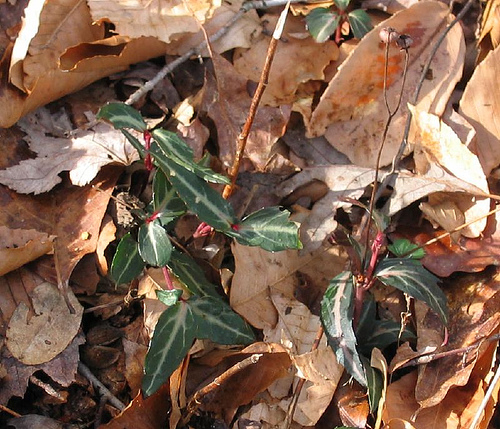
Spotted on a February hike: Pipsissiwa, Chimaphila maculata.
(*photo credit)
February 10, 2012
Walking for Health
Running, sprinting, and
jogging are good physical exercises; so are walking, strolling, hiking, and
skipping along for other folks. Exactly six years ago, I spoke of "jogging for
health," but natural aging makes me now champion a slower pace for healthy
exercise. While accepting the art of walking as good legitimate exercise, busy
people prefer the allurement of jogging. Yet it takes convincing to persuade
long-time joggers that exercise can come through slowing down. Walkers learn to
break away from indoor routines when weather and less snowy conditions persist;
outdoor walkers get fresh air and full spectrum sunlight, and overcome
February's proverbial "cabin fever" (see February 1). Brisk walking also allows
sweating out toxic substances, though to a lesser degree than jogging. However,
walking also refreshes the lungs, lowers blood pressure, controls weight, and
reduces stress.
Equipment: Walkers,
like joggers and others, ought to invest in good equipment, though it is not as
critical as in more demanding sports. Good walking shoes or boots are a must
for those cautious about their feet and ankle conditions. The footwear ought to
be broken in, but how can it without walking? Socks should be absorbent; outer
clothing need be adequate and able to protect against rain, snow, and especially
worrisome wind. For some, a walking stick can give good assistance. I have had
several such sticks, but prefer a heavier and shorter favorite one.
Routes:
Choose a selected pathway that is free of traffic and fumes, has a firm enough
surface, and is free of snow and ice. Never walk where it is icy, but that is
easier said than done in winter months. Take a route that is less congested and
has a scenic background if possible. Some prefer a familiar route and to know
exact distances; others prefer to vary routes according to particular whims. I
have three different routes: one is a park with others exercising (closed part
of the winter and at dark); another is a residential area where the elders sit
on their front porches in summer and enjoy a passing conversation; and the third
is a forested hiking route, which unfortunately I reach by car.
Timing: Keep to daylight hours as much as possible for walkers, like
joggers, may stumble and have a spill. Walking may invite companion
participation depending on speed in which travel occurs. I would say "take a
brisk walk," but that is too much for some. Rather, take the exercise to the
degree you find convenient. At least one half hour daily is generally
prescribed by the doctor but if combined with other exercise should be more.
A hidden advantage of
walking is that there is more time to reflect than when jogging. Walkers can
meditate more easily and the safety of footing is greater than when the pace is
quickened.
Prayer:
Lord, help us see our movement from place to place as a sacred procession, a
symbolic reenactment of our journey of faith, a mini-pilgrimage, a day or so at
a time.

Northern Mockingbird or
Mimus polyglottos
(*photo
by Trisha Shears -
Creative Commons)
February 11, 2012
Encourage Inventiveness in Earthhealing
On
Inventor's Day, the birthday of Thomas Edison, we realize that many of us
have creative ideas but that these are not always profitable, nor patentable
(nor do they need to be). The entire patent picture is somewhat complex as, in
recent years, companies patent all sorts of variations on devices; these are
meant to cover all aspects of property rights when competitors come close to
their product. Patents involve gross profit-making that goes under a guise of
invention. On this day six years ago, our reflection was on use of our body
(hands, feet, etc.) in creative ways, and especially the dexterity of our hands
-- for a multitude of activities: crafting, cooking, sewing, and landscaping.
While
there is much individual inventiveness still to surface, we ought to look beyond
individual creativity and include cooperative or team inventiveness. Our
complex modern world expects us to cooperate in teams where skills of others add
to the total finished invention. The team leader is not necessarily the most
inventive person, but the one who influences creative individuals to work
together for final results.
Earthhealing
requires such cooperative skills. Local communities need skilled designers,
promoters, and managers of community-based tourism. Technical people must work
together to establish small-scale green energy (wind, solar, hydro, geothermal,
and certain biofuel) sources. Local groups may cooperate to create community
gardens, grow commercial crops, and even help establish markets for products.
Cooperative credit unions, small businesses and crafts, and other areas can be
highly fruitful, and all of these welcome inventiveness in order to flourish.
In
this age of globalization, we can anticipate the continuation of large-scale
businesses and factories. However, the emphasis on sustaining small communities
shifts attention to making healthy local communities that furnish locally their
own food, water, fuel, and building materials. Furthermore, these could be
interlocked with small groupings in other places, and inventiveness depends on
facilitating communications and exchanging ideas among these like-minded people,
often at a distance. Inventions of global interest may be a new light bulb, but
it is also ways to conserve and reuse resources.
On
a still broader level is the inventiveness required to develop ways of
redistributing the wealth of this world to address the essential needs of the
poor. It involves resources of all types and that includes the tax-haven money
of this world; it includes enforcing and distributing processes themselves so
that precious financial and material resources are not squandered and misused.
Necessity is the mother of invention -- and necessity conditions (hunger,
illness, illiteracy) cry out for attention.
Prayer:
Lord, Creator of all, enhance our creativity for those who are in need, and not
for some to make fortunes on new devices.
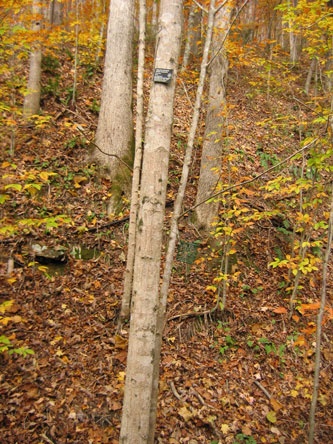
Tree identification tags at the Mary E. Fritsch
Nature Center
Appalachia - Science in the Public Interest (ASPI).
(*photo credit)
February 12, 2012
Healing Troubled People, Troubled Earth
I
turn to you, Lord, in time of trouble, and you fill me with the joy of
salvation. (Psalm 32)
Six
years ago, in our reflection on this Sixth Sunday of Ordinary Time we focused on
dealing with troubles by direct confrontation, selective isolation, compassion,
Lincoln's Emancipation, and through prayer. Today, let's concentrate on the
last of these, on prayer alone, for we need prayer to address the troubles
plaguing our world. Our attention needs to be focused in troubled times, for we
soon discover our limitations. We perceive our inherent powerlessness and turn
in prayer to the Almighty power of God, our Lord and companion. We must believe
that healing is found in our total dependence on God -- and this faith is a
gift.
Petition:
In today's reading, the leper approached Jesus with the words, "If you will do
so, you can cure me." This is a prayer of petition, a coming to God from one
who is isolated through processes outlined in Chapter 13 of the Book of
Leviticus. The outcast status was the result of people in those times sincerely
trying to deal with a communicable disease. Jesus addresses the troubled soul
immediately. We beg God to come to our rescue so that we can break isolated
conditions and touch the lives of others in some meaningful manner.
Resurrection power will come to us.
Forgiveness:
Jesus has compassion for the leper; he cures him. The cleansed leper is to
appear according to the Mosaic Law and be declared cured so that the social
outcast status can be removed. Jesus charges the cured leper not to tell anyone
about his cure, but to carry out the legal prescription instead. So far so
good. But as one might expect, the cured fellow is bubbling over with
enthusiasm and announces his healing; he disobeys and hinders Jesus' ability to
preach openly to those wanting to hear him.
Praise:
God has already conquered all and thus troubles are of a passing occurrence --
though very real to us here and now. We praise the power of God at work among
us and so see our abilities to tackle problems as God's power at work. The
Resurrection is a victory, and we are called to affirm this -- and in this
affirmation we give praise to the Lord of all. Troubles occur, but God invites
us to receive divine power both within and without. Our praise in perceiving
divine power at work or expected in the future is part of our humble service.
Thanksgiving:
Often we pity ourselves for being face to face with our own and others'
troubles. Why Lord? But on second thought, this is a privilege that God has
given us, to live in these troubled times and to be furnished with the gifts of
endurance and optimism, and to see these as divine gifts.
Prayer:
Lord, we beg you to help us confront present troubles; we ask for forgiveness
for past imperfections; we thank you for letting us live and being with us in
troubled times.
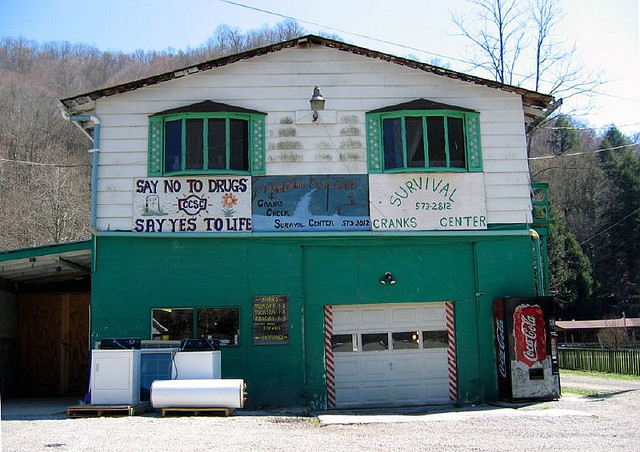
Cranks Creek Survival Center, Harlan Co., KY.
(*photo credit)
February 13, 2012
Methamphetamine Epidemic and Drug Company Profits
Methamphetamine
is a pox: it burns, it scars, it poisons, it kills, it ruins countless lives and
is a tremendous financial burden on our justice and healthcare systems.
- William Spatford Smock, MD, University of Louisville
Today,
we in Kentucky and neighboring states live in the midst of a profit-induced drug
epidemic. Today, Kentucky ranks fourth after Tennessee, Missouri and Indiana in
numbers of "meth labs" in the nation. That is where Pseudo/ephedrine (PSE) is
chemically converted to the highly dangerous drug d-methamphetamine (meth)
that goes under the street name of "ice," "crystal," "glass," "batu," "shabu,"
"Tina," and on and on. The drug when produced resembles glass or ice crystals.
No barefoot chemist could ever synthesize PSE, but only convert it to Meth with
common reagents.
Meth starting compounds and reagents are available at American stores, with PSE
sold over-the-counter since 1976 as a decongestant. Drug companies lobby
intensely to leave it that way and to carry on pseudo educational programs that
are only partly effective. In recent years many countries, including Mexico,
have banned PSE entirely. First Oregon in 2006, and then Mississippi in July,
2010, have returned PSE to a prescription drug status. Kentucky and a number of
other states use electronic monitoring of PSE (an imperfect strategy supported
by all profit-makers). While Oregon meth lab numbers dropped to near zero,
Kentucky's total (1040 in 2010) has tripled. State police estimate that they
locate only one-tenth of meth labs. All the while, drug lobbyists smother our
legislators with promises and goodies.
A
simple solution exists to clean up this terrible mess -- and it is a mess. Home
meth-lab operators are sloppy, and thus their young children get contaminated.
Meth users die horrible deaths on an average of five years after first
addiction; explosive fires result through carelessness; the barefoot chemists
have no compunction of scattered reagent materials and explosive containers
wherever is convenient; and medical bills of those who are affected and
contaminated mount to tens of thousands of dollars.
Quick-profits
of over one thousand dollars an ounce for the finished product drive more and
more to get-rich-quick schemes by enterprising meth producers. Drug company
lobbyists ensure that PSE containing over-the-counter decongestants stay
over-the-counter (even though Kentucky limits sales to individual purchasers).
Such limits do not stop multiple buyers and pharmacy- and doctor-shopping.
Furthermore, dozens of less dangerous commercial drugs are effective. Initially
electronic tracking looked promising, but it is now being completely evaded
through group and individual ID "smurfing." Prescription drugs, though never
perfect, are better. When will we tackle drug privateers and the drug culture
itself?
Prayer:
Lord, inspire us to address socially addictive drug problems as the gateway to
healing our wounded Earth.

Coming soon! March blooms of the rue anemone, Thalictrum thalictroides.
(*photo credit)
February 14, 2012 Valentine's Day and
Flowers for Every Season
More
than anything, I must have flowers, always, always.
Claude Monet
I
agree with Monet's words and appreciate his pleasant paintings and join in his
love of flowers. If we are committed to healing our wounded Earth, we discover
somewhat by surprise that flowers have a key role to play. Today, on
Valentine's Day, many loving couples try to cure broken relations and
improve good ones through the healing effects of flowers. A blooming dandelion
among leaves today can gladden winter-starved hearts as well.
On sunny February days several of our forsythia bushes send out a blaze of
yellow, a floral affirmation of renewal of life. Our outdoor flowers, thanks to
sacristan Clara, bloom from February to mid-December before heavy frosts kill
unprotected snapdragons and petunias. We will have spring flowers galore and
the hillside behind the church full of ground phlox, ox-eyed daisies, and the
blooming black locust -- and fruit tree and blueberry blooms as well. Floral
summer is heralded by blooming weigela bushes, rose of Shannon, and irises.
Deeper colors include Sister Theresa's beds of zinnias and the imposing
hydrangea; my own garden lilies add color. Autumn includes mums, cosmos, and
golden rods. Winter is the problematic season for flowers, but my protected
salad beds (cloth coverings) are able to protect a few hardy survivors.
Indoors
is well-taken care of by the contributions from our parish flower gardeners --
and these seem to make our Liturgy a more celebratory event. The reds and
greens of Christmas flowers actually usher in the floral year and give impetus
to the start of a floral 2012. Houseplants such as the Christmas cactus
certainly help in domestic scenes. We are blessed in our local church having
interior floral arrangements every month except March, when Lent covers the
entire month (as this year). Fulfilling our craving for Easter lilies is
associated with the Resurrection event. Floral arrangements are too numerous to
catalog, but all gladden hearts needing consolation.
Monet
writes as well as he paints. Flowers were deep in my mother's consciousness,
for she grew them and admired them -- and in a wheelchair tour of her retirement
neighborhood could name about ten with sureness even when her mind slipped on
other subjects. Flowers remained for her, the heralds of eternal life.
I firmly believe that what we love will live in eternity, and that those
appreciating flowers will find many decorating the place. Flowers are God's
special gift to those who are desolate. Because of the serious content of
our reflections flower photos are added; they encourage readers who have too
heavy a diet of environmental crises. Janet Powell's flower photos help elevate
my spirit when most needed. Is that true for you too?
Prayer:
Lord, we appreciate the gesture of giving us flowers to brighten our outlook
with the hope that things will improve.
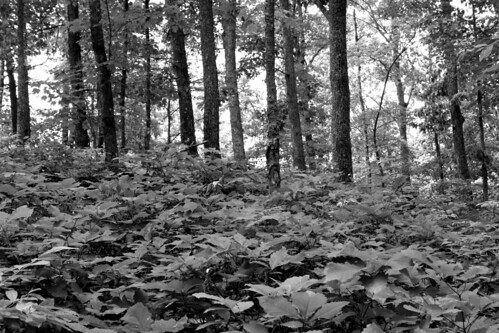
Mixed mesophytic forest scene, Rockcastle Co., KY.
(*photo credit) February 15, 2012
Facts about Global Deforestation
Our
world suffers from deforestation that is occurring at a very rapid rate. Living
within the Daniel Boone National Forest area makes me sensitive, since our
Mixed Mesophytic Forest (ecologist Lucy Braun's terminology) is the oldest
and most varied temperate forest in the world -- and we ought to protect it for
climatic control reasons, and because eco-tourism is our major economic asset.
Facts about serious deforestation issues include:
*
The world's rain forests at present rate of decline will be no more in 100
years, and yet these are the lungs of our planet;
* Forests cover 30% of the
Earth's surface, but the annual loss is equivalent to the surface area of
Panama. However, the rate of deforestation is declining due to growing
awareness of disaster and the start of global controls and proper management;
* Forests are cut for
agricultural uses (many corporate plantations): cattle grazing (takes 70% of
land for only 6 to 11% of humanity's food); palm oil plantations (fastest
growing vegetable oil source) are established in ecologically valuable swamp
land; and soybean production is expanding. Blaming small farmers for
deforestation is overstated; rural populations are declining, but still forests
are cut for food crops and firewood;
*
Forests yield timber in large amounts, often with severe impacts on wildlife
habitats in tropical areas. Timber production is especially severe in
southeastern Asia where the wood products are the capital for expanding palm oil
plantations;
*
Forests are currently lost due to other types of development such as roads,
mines, rail facilities, airports, and urbanization. Road-building
exacerbates deforestation for it allows access to still more logging, part of
which is illegal or poorly managed;
*
Some deforestation is due to increased numbers of wildfires;
*
As said often in these reflections, forests play a vital role such as reducing
violent temperature swings. Deforestation leads to climate change and to loss
of habitat for native species and more of these are threatened or endangered
each year; and
* Solutions include stopping
the clearcutting practice and excessive tree-cutting. When timbering is needed,
sustainable forest management practices ought to be used.
References:
"Root of the Problem," Union of Concerned Scientists Report, Condensed in
Catalyst, Fall 2011; also National Geographic Society, "Deforestation,"
2011.
Prayer:
Lord, you give us the gift of forests; give us a sense of growing respect for
these fragile gifts in all their varied beauty and benefits.
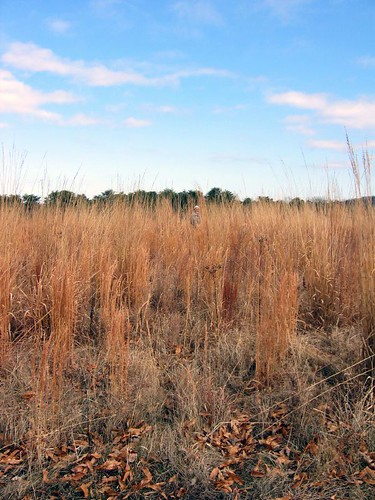
Take a hike in mid-February.
(*photo credit) February 16, 2012 Ten
Ways to Avoid Cabin Fever
Stop
the Violence Day touches the lives of many of us who ignore forms of
"violence" to ourselves or to others. Many of us suffer from "cabin fever,"
which is defined as a claustrophobic reaction that takes place when a group or
individual must remain in a small place over an extended period of time. Hints
to break this winter-related malady include:
*
Go outdoors at opportunities during daytime, especially on these sunny but cold
February days, for the full spectrum sunlight does wonders even in cold weather;
*
When weather and personal energy permit, perform a garden-related operation:
spading the ground, sowing peas, repairing fences, and trimming grapes and fruit
trees;
*
Step outdoors on the star-lit night and take in the night sky, for the vastness
of outer space and the immense distance from the twinkling heavenly bodies
stretch our imaginations to the limits and allay petty concerns;
*
Visit friends even though much of the time is in the vehicle taking one to and
from the place. The change in scenery has an important quieting effect on
cabin-induced nerve problems;
*
Be diligent in attending regular religious worship and find the opportunity to
assist others who need companionship and encouragement;
*
Feed the birds in the backyard and spend time at the window observing their
feeding and other habits;
*
Take in a new book, a DVD, a lecture, or an Internet class, to break loose and
reach out to broader vistas of interest. Travel books and TV and Internet
travel scenes may help cure the cabin fever;
*
Get a houseplant to add to the indoor color, for these give the comfort needed
for an otherwise drab season (see February 14). The Christmas cactus and
other blooming plants must be given prominent places and purchasing a bouquet
may bring a smile;
*
Cook an ethnic meal and couple with acquainting yourself with the land of
culinary origin and all its other interesting practices and arts; and
*
Redecorate the house thus giving the place a new look to help raise the spirits
of all dwellers. Add a touch of color while awaiting spring flowers and
returning birds.
Prayer:
Lord, help us see the coming Lenten season as an opportunity to enliven our own
spirits and those of loved ones, friends, and neighbors who find winter a major
challenge.
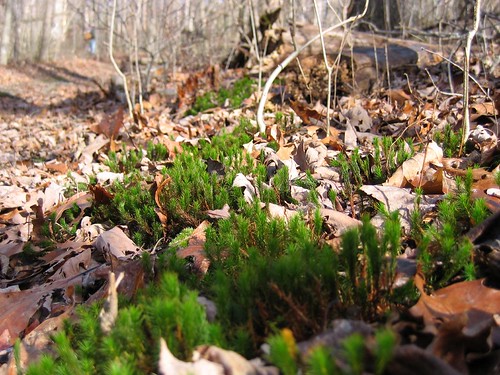
View from the winter forest floor.
(*photo credit)
February 17, 2012 Pray
Your Own Way; Yes, Pray Your Own Way
When
in the Novitiate in the 1950s, I was assigned for a period of time to assist an
elderly Jesuit who was partly paralyzed, and to tidy up his room. On my way to
the infirmary, I went past another elderly brother's room, and he always seemed
to have a vocal conversation during his morning prayer period. It became
apparent that he was praying to the Lord or some saint in a familial manner, and
aloud as senior citizens often do.
Praying
to God should be as second nature as a neighborly conversation. Some have
certain rituals before praying including a period of quiet time. I find this
somewhat disconcerting because I try to converse with God in a more informal
manner and often during the day. Those who find prayer foreign may set aside
times, places, and physical postures that manifest a sense of respect for the
Almighty who loves and has mercy on us. We may develop our own way of praying
outside of formal prayer times and places (Morning Prayer, chapel, etc.).
Perhaps not having a monastic calling does permit greater informality for those
of us whose ministry is less communal. We pray in pauses and breaks of the day
or on walks and find God as our companion as we age. It soon becomes evident
what it means to hear the Scriptural admonition, "Pray always." Informal prayer
times and places become routine and ever more present as we near the end of our
earthly journey.
God
does not need our prayers; we do. We are drawn to beg for things that seem so
impossible to attain, and yet all things are possible with God. Are we willing
to accept that prayers will be answered after we leave this passing world? The
important thing is the trust that prayers will be answered in God's good time,
for even time is not ours to own. Letting our trust grow is paramount.
Our
prayers are so often begging, but we have to constantly remind ourselves that we
ought to give prayers of praise and thanksgiving. We need to see the gifts
given and praise God in ways that other creatures are incapable of, for we can
freely offer these prayers as exercises in precious freedom. At times we are
dry and need not rely totally on our own words, for to pray the Scriptures or to
pray the Rosary are praiseworthy as well, and deserving of encouragement. Yes,
formal prayer is praiseworthy, and so we can repeat familiar prayers when
composing our own becomes quite difficult.
Prayers
of thanksgiving are a common theme in these "Daily Reflections" -- and they
ought to remain so. Earthhealing is a task before us, and we thank God for the
opportunity to serve at this moment and place. Healers are specially called; we
need the will to respond. Amid this land of plenty we are moved to show
gratitude for the gift of our vocation.
Prayer:
Lord, help me to pray always, and help others to see the comfort and liberation
that such a wonderful practice affords.
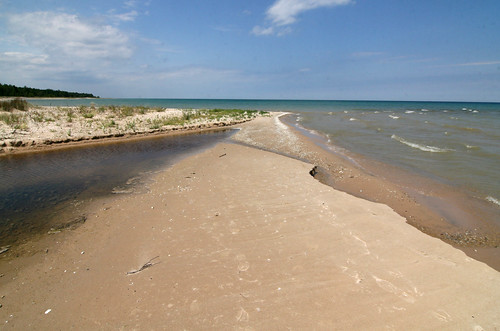
Along the banks of Lake Huron.
(*photo credit) February 18, 2012 Maritime
Transportation and Global Air Pollution
One
area of pollution that contributes perhaps as much as ten percent to global air
pollution is that of maritime shipping. It is an overlooked area that often
defies policing except when ships are within the territorial waters of maritime
nations. With the vast increase in shipping in this 21st century and, with the
use of less expensive high sulfur fuels, maritime pollution amounts have been
rising (except for the dip during the Great Recession).
In
2010, a report by Daniel Lack of the U.S. National Oceanic and Atmospheric
Administration (NOAA) listed measured emissions from one commercial container
ship; when the ship approached the California coast with its strict state sulfur
fuel requirements, the ship switched from "heavy fuel oil" (3/15% sulfur) to
"marine gas oil" (0.07% sulfur); it slowed its speed from 22 knots to 11 knots.
Through this procedure emissions of sulfur dioxide and fine particles dropped
about 90%. Also due to slower speed and fuel switch, carbon dioxide emissions
dropped a total of 58%. Directly related, the International Maritime
Organization is adopting a Energy Efficiency Design Index requiring ships built
in the last part of this decade to improve energy efficiency by 10% and in the
2020-24 period improving them by 20%.
From
the very latest research, we are becoming aware that some air pollutants have a
cooling effect on climate, though many pollutants have the warming effects we
experience. This makes maintaining air standards a somewhat complex issue with
near-term human and animal-health benefits and longer-term problematic results
depending on the pollutants cleaned from the air. Also, NOAA in its Annual
Greenhouse Gas Index shows a steady upward climb of pollutants since 1880.
Just since 1990 all air pollutants have increased 29%. The year 2010 has seen
the highest rise in carbon dioxide levels (up 5.8% in one year and 45% since
1990 levels). Global coal consumption increased 7.6%, natural gas 7%, and oil
consumption 3%. This was driven by 10% economic growth by China and 9% by
India. Methane release levels are also rising, and this is more alarming since
methane has many times the climate change potential as does carbon dioxide.
Furthermore, warming Arctic climates may accelerate the rate of methane release.
By
2015 the International Maritime Organization will require switches to very low
sulfur fuel, for areas such as the entire coastline of North America (out to 200
nautical miles) as well as the Baltic Sea, the North Sea, the English Channel,
and other heavily-used global water lanes. Within this decade sulfur limits
will be tightened on all fuels from 4.5% to 0.5%. Setting goals will not come
any too soon, for dramatic potential temperature rises are expected by
mid-twenty-first century standards.
Reference: Christer
Agren, "California Rules Give Great Benefits," Acid News, October, 2011,
p. 20-21; also p. 15.
Prayer:
Lord, inspire us to monitor and clean up our air.
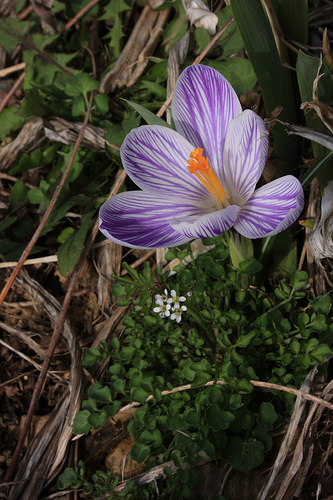
Crocus bloom despite February snow.
(*photo credit)
February 19, 2012
Penitential Rites Give Us Comfort
Lord,
heal my soul for I have sinned against you. (Psalm 41)
In
the Gospel reading for today (Mark 2: 1-12), Jesus enters a house and a
paralyzed man is lowered from the roof due to the crowd. Jesus forgives the
man's sins, but some of the scribes object, saying that this is blasphemy.
Jesus asks them what is easier to say: the words of forgiveness (spiritual
healing) or the words of physical healing, "Walk again." The physical miracle
causes the crowd to be awestruck, but many fail to get the message that the
spiritual healing is more important. Jesus is not doing this as a wonderworker,
but as teacher and spiritual healer.
In
God's mercy, the power to forgive sins is extended to the entire Church; through
God's instrument on Earth, pervasive greed and hatred are broken and individuals
are freed of enslaving bonds. The transferring of this power to his disciples
on that first Easter Sunday (John 20:19-31) through ordination down through the
ages, is an ongoing Resurrection renewal. God allows us to bear and hear words
of forgiveness so that we can start life anew. Today, this is ever so needed in
a world where misdeeds of the sinner's past remain on unforgiving computerized
records, and renewal of life is unrecognized by a merciless world.
God's mercy is utterly needed, and this is shown in the Church's penitential
rite. We are all sinners, and we benefit mightily in hearing with our ears that
we are forgiven. Of course this means we first admit our misdeeds -- and that
is the difficulty for many in a culture where we seldom ever acknowledge
wrongdoing. Here the act of God's forgiveness is manifest, but it is all the
more so when surrounded by a reverent and fully meaningful penitential rite.
With the proper setting, the degree of comfort to each who is forgiven grows all
the more; the resolution to sin no more becomes a reality in one's spiritual
journey, and thus it is that peace of soul can be more definitively established
and our outgoing work can have a firmer footing.
In
forgiving sin, Jesus teaches us that healing is of the highest spiritual
priority. Thus, the institutional power to forgive is God's gift to our
unforgiving world. But still this power does not stand alone. All who are
members of the Body of Christ are called to heal grievances that are wrought
against them. All of us offend and are offended in some ways; all must not let
these "stepping on our toes" stay unresolved. As we prepare for the Lenten
season we should make use of the Church's penitential rites where possible to
ask God's pardon; furthermore, we should make a firm resolve to forgive those
who have offended us in any way. How deadening is the refusal to forgive and
thus heal our Earth and people! Earthhealing and forgiveness go hand-in-hand.
Prayer:
Lord, give us the strength to ask forgiveness for offenses and to forgive
others, so that individual comfort will grow and that our joint journeys of
faith will be energized.

A replica of Abraham Lincoln's grandmother, Bersheba's home.
Springfield, KY.
( *photo
by Mark Spencer)
February 20, 2012
Presidents' Day: Washington and Lincoln Insights
Many
of our American presidents have made singular contributions to our nation either
while in office or prior to or after that time. Recall the military exploits of
Andrew Jackson, Ulysses S. Grant, and Dwight Eisenhower. Others did so as
presidents such as the two whose birthdays we celebrate this month, namely,
George Washington and Abraham Lincoln. Our current efforts at limiting wealth
ought to incorporate two major presidential insights: the Washington concern for
a union of colonies and the Lincoln insight in the process of abolishing
slavery.
George Washington came to realize with other American revolutionaries that
thirteen independent colonies would not address commercial and safety needs; for
furthering commerce and security, these united states (colonies) must become THE
United States. That was an emerging Washington insight, first seen during the
Revolutionary War; his conviction grew during the Articles of the Confederation
period and the struggling period before and through the 1787 Constitutional
Convention. It was solidified in the period from 1789 to 1797 during his
eight-year presidency. True to the tradition of our founders, we must be
willing to abandon more local "sovereignty" for cooperative structures to meet
global financial and environmental demands. Fidelity to Washington's goals of
going from state to a federated national level now involves transition from
national to global structures.
In
a similar manner, Abraham Lincoln realized that our nation could not continue to
exist half slave and half free. Extending this insight, one realizes that a
safe and prosperous world cannot exist with one-tenth haves and nine-tenths
have-nots, or 1% rich and 99% Americans in an economic struggle. Americans must
be first in calling for efficient governing structures to handle global issues
beyond that of a single nation. Along with others, the United States must work
to overcome the wealth disparities and the source of global insecurity and
distrust. We aspire to be number one, not as quantitative producers and users
of goods, but as a leader in a more perfect global union to a higher quality of
life.
For
us today, global destitution is economic enslavement for many have-nots. It is
our sacred duty as Americans to lead in freeing the world from its bonds of
poverty. Global regulations must include all areas of the commons: air, water,
specific land areas, health facilities, educational opportunities, intellectual
property and communication networks, silent space, commerce, and movement of
people (see Reclaiming the Commons on this website). Our national
interests must transcend our borders to all the world. Thus, emerging global
structures must address the financial, personal security, care-giving, nuclear
proliferation, and environmental crises of our age.
Prayer:
Lord, expand our awareness of our historic treasures and the good that our
leaders have done to improve the quality of our nation; help us bring these
insights to a troubled world.

Share homemade goods with others on Fat Tuesday.
(*photo credit)
February 21, 2012 Celebrate Marti Gras;
Ponder Fat Tuesday
In
various parts of the world Christians observe this day before Lent. If done in
moderation, this can be joyful and a reminder that Ash Wednesday will usher in
serious reflection. None of us refuse celebrations, for the human spirit needs
this partial withdrawal from worldly concerns. Really, Mardi Gras brings to a
fitting close an extended Christmas season. Do have a good time, but leave room
to reflect on the "fat" (Gras) aspects of the day.
In
years of more rigid fasting, homemakers would rid the household of animal fats
prior to a meatless 40-day Lenten span. This was achieved by special dishes,
sauces, and baked goods that involved a heavy dose of leftover fats. My
mother's people loved to do what many Southern people do, and that is use plenty
of lard in everything from fried chicken to peach turnovers. Making use of
lard's high boiling temperature meant that meat was less prone to food-borne
contamination. All meat dishes were well cooked, but at the price of
artery-clogging substances moving through the body. And so obesity, heart
disease, and diabetes problems were the inevitable price of using lard as the
cooking fat of choice.
Reflect
on animal fats a second way; these require enhanced amounts of resources when
compared with vegetable oils. Quite often animal fats take much more
agricultural resources (land, water, and feed) than growing soybeans, peanuts,
corn, or olives for vegetable oil. Granted, some grazing lands are not useful
in other cropping (and could be left as wilderness), still it takes grains and
other cropland products to fatten livestock. All in all, resources needed to
breed, raise, shelter, transport, and butcher livestock are far greater than
those needed to grow and process vegetable crops. Recall that 70% of the land
mass in agriculture is in grazing and the result is only 11% at most of the
ultimate food. While many meat and animal products make good foods, they are
also resource intensive at a time when food-growing choices must be considered
in feeding a hungry world.
Maybe,
amid today's celebration we should ponder whether our meat diets ought to be
reconsidered, and Lent is a perfect time to do this. This is not a promotion of
vegetarianism, for some meat is good for us, and prolific wildlife needs to be
controlled and harvested (see February 7); the deer harvest yields ideal food
products (organically-grown without tending or feeding in winter) in the proper
season. The argument is not to totally refrain from meat products though that
may be a laudatory cause. Rather, efforts ought to be made to reduce excessive
meat consumption such as large steaks and quarter-pounders with fries and coke.
Say goodbye to heavy meat meals; consider more vegetables for that is healthier
for people and Earth.
Prayer:
Lord, teach us when to celebrate the bounty we have, and to do this with
moderation; help those of us in a land of plenty to reflect on ways to share
resources with those in need of greater food security.
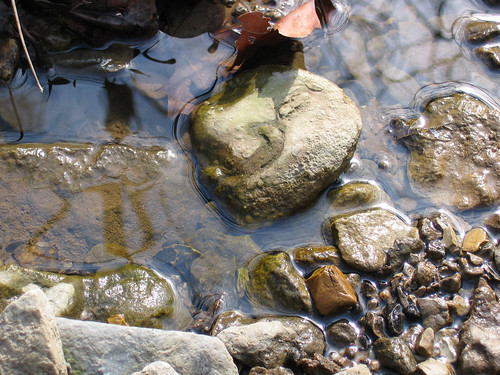
Unknown histories of stones in a riverbed.
(*photo credit) February 22, 2012
Ash Wednesday: Will Daily Reflections Be Ashes?
On
this beginning of the solemn season of Lent, we are reminded by the ashes on our
head of the passing of things of this world. Mortal life is terminal, and so
are all the activities in which we are now engaged. Our possessions are not
absolutely ours but as Psalm 124 says these belong to God. Humbly, we are from
dust and unto dust we will return, and yet there is more. Between beginning and
end of dust periods we make a lasting mark for better or worse. After the
ending dust emerges an eternal life -- or death. Thus, through the cloud of
dust comes an anticipated future, and through faith we know that the love we
acquire between dust-to-dust is carried with us before the throne of God.
What
about the mortality of these Daily Reflections? The idea of such essays
was conceived almost thirty years ago, but only made public on the Internet less
than a decade ago. Will this service move also to ashes or does it matter? One
answer is that it certainly will end and that's that. A second is that if
Daily Reflections are given in love, and received in love, their value
extends beyond their lifetime. In and through Jesus's sufferings all loving
acts are saved; they are part of an eternal sacrifice that means "making things
holy." We do not hold a concrete accounting record of the lasting value of what
we do, and we are not able to measure the content of each act of love. God is
the master accountant, for God is Love and almighty. We simply dip into or
plunge into the ocean of divine Love; God knows how much.
Making
our actions (including Daily Reflections) effective is our constant
prayer and refrain. We hope that our efforts have a love content that is
contagious to others, God willing. This is more than a game, a pretending, a
neutral time spent spinning wheels. Only occasionally is the feedback positive
enough to suspect some reflections have been seen through 40,000 daily hits.
Through a Resurrection-centered spirituality we realize that potential
effectiveness rests in the enabling power of God. New life is possible for
those who believe. We can change minds, if we believe that God enables us
through divine power. Something will remain well after this website has turned
to dust. True love is eternal, and so are messages sent and received in love.
A
variety of issues have appeared in this series. A few are more related to
average readers than others. Themes such as halting misuse of resources,
introducing healing practices, and radical sharing of what we have with others,
must become familiar. One may say, "I hear this often," but we become confident
that this is part of making it "often." Will concrete effects result? Radical
change may be slow to germinate; the growth process has many donors, for it
takes a village to make a person. We are servants doing God's work; what we
seek will come to be and, in believing, it more quickly comes to be.
Prayer:
Lord, you are the eternal accountant; help us grasp that what looks likes
ashes is fertilizer for an eternal spring.

A light against dark February evening.
(*photo credit) February 23, 2012 A Peace
Dividend: Take What Is Rightfully Ours
On
Peace and World Understanding Day we wonder whether we have exhausted the
subject. We talk about extending understanding among others through quite
popular educational and experience-exchange programs; we mention global
interfaith gatherings such as occurred last year at Assisi III; we give
generously to victims of earthquakes and floods; we even sponsor groups to go
and assist victims of such disasters. We strive to bring peace and
understanding in many ways. Is there more that we can do together with others?
Have we looked around for peace issues and engaged in them with all the poor?
Have we focused actions on taking what rightfully belongs to the commons?
A
culture of domestic arms. Americans talk about strutting about bearing
individual arms. Why allow them ammo? The numbers of Americans killed by
gun-related violence is staggering and surpasses ten thousand each year.
Bearing individual guns make inexperienced Americans be tempted to shoot before
they think. The vast majority have no need to carry loaded weapons.
An
untamed military budget. The current financial crisis teaches us that we
Americans must trim our military budget, one greater that the rest of the
world's combined. Why us as global police? Enough military-industrial complex
pressure!
Foreign
aid cuts. Foreign assistance is a favorite whipping boy though it accounts
for less than 2% of the entire national budget. The poor have little voice;
they are not lobbyists. All living Secretaries of State of both parties testify
to the need for adequate foreign aid. Don't these funds belong to the poor?
Proliferation
of nuclear weapons. This is the result of a world where untamed nuclear
energy has been unleashed. Should not our peacetime effort be to see that these
weapons are destroyed?
A
society on drugs. Medicine advertising and available over-the-counter
medicine and agents along with a massive amount of prescription drugs make this
entire nation drug dependent, whether legally or not. Rather than bring peace
to souls, this disturbing drug condition causes desolation. Why feed the drug
corporations with funds needed for proper health facilities for all?
The
death penalty continues. We still witness in too many states (including
Kentucky) where unfortunate prisoners are being put to death. Life is precious
and each person needs one more chance to change ways. Isn't this why
abolitionists work so hard?
Lack of health funding.
Our nation needs a lower-priced accessible health system. On the global level
all people have a right to adequate health facilities. Is this beyond the
world's financial ability to care for our needy brothers and sisters?
Prayer:
Lord, help us find ways to work for world peace.

Anderson County, KY farm scene.
(*photo credit) February 24, 2012 Sowing
Peas Early in Kentucky
Why
talk about sowing seeds in a winter only two-thirds spent? Yes, a host of
reasons exist of which the following are but a few:
Sowing
peas in February continues a time-honored tradition in our family and
neighbors who like early sowing as a sign of readiness to tackle a difficult
growing season.
Sowing
peas satisfies the restlessness of the gardener wanting to get things
going for 2012. Preparing ground (provided not frozen solid by the winter
freeze) is the best way to start.
Sowing
peas manifests faith in the promise of harvest. Some sowing is
premature, and seeds will rot and have to be resown later in spring. The act of
sowing is what is important.
Sowing
peas allows production of garden produce that is early, mild, and full of
flavor. The anticipation of such flavorful produce makes one's mouth water, and
this becomes an energetic stimulus to go out and conquer the world of gardening
in 2012.
Sowing
peas energizes sowers who must be reminded that the joy of harvest comes
after the sweat of sowing. Without the beginnings of the process, the results
can never be achieved and so it affirms the work of the sower of many seeds --
material and spiritual.
Sowing
peas confronts neighbors who think you are crazy. They are forced to see
the need to have an early start in garden work.
Sowing
peas answers the question, "Can't you wait until spring?" A holy
impatience consumes so many of us. Putting out peas in February is a testimony
that we want to heal our wounded Earth ASAP and bring on the New Heaven and New
Earth.
Sowing
peas is a form of proclaiming the coming of the Kingdom. It is a
spiritual experience that will start the gardening year. We hope for success
and we trust in God's gift of favorable weather to allow the harvest to be
plentiful.
Sowing
peas gives bragging rights in conversation. To start early tells others
that we are organized enough to do this on a planned schedule, and we hope that
extends to our entire life. While this seems trivial, it is our way of
overcoming slothfulness.
Sowing
peas accompanies the weather in our noble commonwealth; this act tells
the world that ours is a fertile and productive land, a worthy and cooperative
endeavor between land and people.
Prayer:
Lord, allow us to continue the simple ways of life so that all might benefit
from such humble procedures; allow us to continue ways that teach all to be good
healers and to be in tune with the needs of our wounded Earth and people.
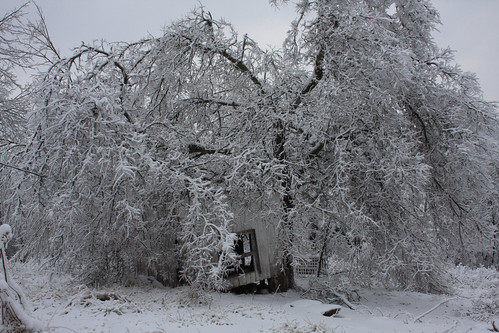
Ice storm burdens tree, which in turn leans upon hen house on Washington Co., KY
farm.
(*photo credit) February 25, 2012 Global
Anticipation of More Natural Disasters
Global
disasters of possible partial human causation (floods, hurricanes, droughts,
tornadoes, major snow storms), along with earthquakes and volcanic eruptions,
seem to be happening with greater frequency in recent years. The insurance firm
SwissRe that insures other insurance companies estimates that global
disaster costs have gone from $25 billion dollars per year in 1980 to $130
billion in 2011. Part of this rise is due to climate change and part due to
human habitation and development in proximity to disaster-prone regions; yes,
part of this is attributed to natural activities and part to Homo sapiens -- but
it is a higher cost.
When
this was written three months ago, Thailand (the world's major exporter of rice)
had suffered a prolonged flood lasting from July and still continuing into late
November; this was leading to possible shortages of rice. During 2011, the
United States experienced heavy flooding in the upper Midwest, drought in the
South Central region, hurricanes on the east coast, deadly tornadoes in Missouri
and Alabama, wildfires in the Southwest, and heavy snows across much of the
northern portion of the country. Virtually every major region of this country
has witnessed heavy losses through disasters. Globally, what about droughts in
the Horn of Africa and the earthquake in Japan in March with its costly
aftereffects -- and this mentioned flooding in the Bangkok area?
Is
this doomsday talk? Authentic questions arise as to whether disasters are
really unexpected, or are these to be expected with rapid climate change and
increased world population. People are settling onto flood plains and nearer
volcanically active areas with rich soils. Some speculate that ocean
temperature rises will spin off more hurricanes in the upcoming seasons though
that theory is unproven. Carbon dioxide, a climate change culprit, continues to
rise due to increased combustion of fossil fuels and losses of forest that have
mitigating effects on severe climate. Methane, a major climate change player,
escapes during increased production and from the warming of the tundra due to
global warming. We need renewable energy replacements.
Mother
Nature cannot be tamed by human effort, but it ought not be teased either. A
deeper respect for the planet's processes and how to fashion our activities in
fragile zones would help. We have to do our part from building wind turbines to
more flood control projects, from halting deforestation to stopping the
development of flood plains and the sides of active volcanoes. We can challenge
affluent people who build on hurricane-prone seashores and in wildfire-prone
forested regions -- and who then expect expensive taxpayer protection in times
of disaster. All need informed choices for residence and land use regulations.
Prayer:
Lord, help us to see the signs of the times and to treat our Earth with
proper respect. Help us do this while trying to curb the release of climate
changes pollutants and the other pressing environmental problems which confront
our world.

Queen Anne's lace, Daucus carota, with snow.
(*photo credit) February 26, 2012 The
Temptation to Keep the Status Quo
'The time has come,' he
said, 'and the kingdom of God is close at hand. Repent and believe the Good
News.' (Mark 1:15)
Amid
the turmoil of current financial convulsions, unusual weather conditions, and
climate changes that are denied by so many, we need to heed the words and deeds
of Jesus. He assessed the critical world situation immediately after his forty
days in the wilderness amid wild beasts and consoling angels. The world
was changing and included the
arrest of his cousin John the Baptist. Yet amid this turmoil Jesus launches his
ministry.
The first Sunday of Lent is always dedicated to temptations, starting with those
that Scripture says were endured by Jesus; the actual content was noted in
Matthew and Luke but not in Mark's Gospel. Thus we could digress from specific
temptations (see 2010 and 2011) and consider the overall temptation of people to
deny the troubled times (some say no climate change today), to excuse
themselves from any remedies to disastrous conditions (this is a matter for
experts), and to escape once more into the allurements of the consumer
culture and substance abuse.
Those
who are inclined to turn away and champion a dysfunctional status quo suffer
from an addictive culture. This becomes a distraction from the saving and
healing of our wounded planet and its inhabitants. The temptation is to refuse
to face reality and confront the forces that work against the spiritual life so
needed in these times. Facing reality takes a prayerful reflection to see where
we really stand and how much we are enticed by the materialism all around us.
We must be able to discern the elements of the political/economic/social system
that have merit and what parts must be changed. The Occupy Wall Street movement
has touched on the inherent disparity of wealth and its tight grip on the
system. Are we to remain silent or are we to confront this system with its
conditions of unemployment, hunger, and loss of housing through foreclosure?
Will we speak up in time to reclaim the commons? Are we tempted to avoid facing
reality?
The
temptation involves the feeling of being too weak to make a difference. If
individuals can do so little on their own, why attempt to change? "Let's focus
on saving our precious hide." This temptation to withdraw from the conditions
threatening our world and fall back on some safe past stance is the work of the
devil. Prosperity for a few privileged and those lucky enough to succeed is the
wrong way -- and is the temptation to defend the status quo. We must show that
a power is at work in the world, the power of the Resurrection of the Lord in
which we are called to participate. With this empowerment and through a
prayerful discernment period of Lent we can challenge the current system and
make the necessary changes demanded.
Prayer:
Lord, help us recognize the temptation to silence, and to be energized through
your power to make changes as needed.

Lenten rose, hellebore, blooming in February.
(*photo credit) February 27, 2012 Risks in
Discerning the Reality of Our Culture
If we want to be like Jesus,
we may have to share the risk taking that he underwent in his shortened
ministry. Are we willing to follow in his footsteps or are we tempted to remain
inactive?
Question
conformity. We learn early in life that conformity is the hallmark of
popularity when working within the system: same haircuts, vehicles, height of
lawn grass, and color of ties. To fail to conform could risk losing one's
position, status, place of honor, chance for promotion, perks, enhanced
salaries, recommendations, and other things that comprise the road to success.
Nothing seems so non-conformational as to question capitalism, especially in all
its immense global reach and power. Yes, we conform to the rules of
language and use English, the language of this communication to the best degree
possible.
Question
credibility. Some would argue that to be credible one must say the things
people desire to hear. Popularity in such cases is for them the proof of
credibility. In his day Jeremiah saw that to speak about a reality that was
surely coming was highly unpopular and considered "incredible." In every age
facing reality bears the same time-proven risk of being rejected. People
hesitate to go along with something unpopular. They say, "What's the use of
prophetic words if no one listens?" Impending ruin is not a popular subject and
so people do not listen.
How
does one discern authentic credibility? The first alert is to question popular
issues when systems are dysfunctional and not fulfilling their purposes; this
becomes a flag that something may be wrong. In weighing different courses of
action weigh whether words and actions work in tandem. Recall that Jesus
focused criticism of the religious establishment of his day on the lack of those
whose words did not conform to their deeds. Choosing to believe means that
hearers must be open to truth; one must ask a neutral observer or spiritual
director. Are we open to change?
Question
justification. We live in an addicted culture and so need to weigh the
reasoning used to consume more (drugs, fuel, and electronic devices). Are these
not simply excuses to be more immersed in the culture? Justifying a
wealth-driven culture is not sound, and yet many are not equipped to defend
their reasoning. However, spiritual battles before us go beyond
rationalization. The poor and simpler living people know this, even when unable
to articulate the position for fear of being ostracized and ignored. The
unpopular could be so for not saying enough on a subject, or of saying something
that people do not want to hear for one or other reason. Measuring just how
much can be said at a given time is an art, and we do strive to present a
pleasant message with appealing photographs so as to hold our audience.
Prayer:
Lord, allow us to follow in the footsteps of Jesus. Help us discern the
qualities of conformity, credibility, and justification and be willing to risk
unpopular reception.
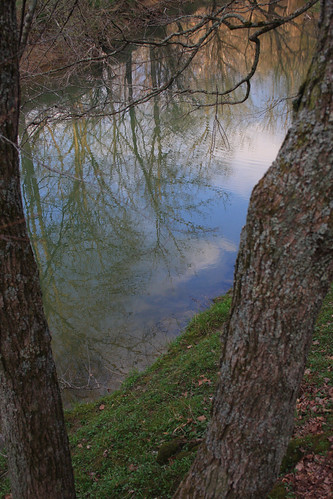
Blue skies beyond...
(*photo credit) February 28, 2012 Sport
Events Can Become Unhealthy
As
we approach "March Madness" (over excitement about basketball final contests) in
Kentucky starting on Thursday we ask whether sports have as many debits as
benefits?
Sport animosities build
and last. When I first started serving here in Estill and neighboring
Powell County, I would tell inquirers when asked that I was originally from
Mason County. The reaction was amazingly one of distance or disdain.
Eventually it became apparent that this has to do with sports for Mason County
was a competing basketball powerhouse. Our state motto is "United we stand;
divided we fall," and yet this is not always observed in sports. Home players
and coaches are idolized; distant ones are not. March madness sickness is
really year-round, and I must confess having been infected by it on numerous
occasions.
Sport
economics is obscene. Think of the high prices that coaches are
paid, the highest salaried persons in many major American universities. The
schools are generally principal state ones or those in particular loyal regions
or cities. This high popularity results in transfer of large sums of money as
the mass media vie to sponsor sports events. Commerce demands high-powered
athletic programs, extensive coaching staffs, pressure to acquire promising
players, and immense stadiums. Big time campus sports have little to do with
academics; student athletes must juggle studies and sports and often await
professional drafts.
Gambling
temptations are always present, either betting on the games when clean or
attempting to subvert players to throw games. The first is overwhelming; the
second is risky, for perpetrators are often caught because some athletes or
teammates cannot keep secrets. Actually, the worst cases of corruption are
often overseas, and may threaten war among competing countries.
Spectator
cheering isn't physical exercise except for vocal cords. Too often those
who exercise in minor amounts regard the sitting before television or in an
arena or stadium as somehow participating in the sporting event itself -- as
though their shouts change the outcome. Actually, watching sporting events is
no match for walking, jogging, or gym workouts alone or with friends. In fact,
high tension games can be unhealthy, for the tension is hard on the heart. Look
out adrenaline rush!
Spectator
hysteria is that uncontrollable rage that comes over crowds at a perceived
bad call by an umpire or referee. Maybe using video equipment could help
decrease the supporter's anger. Such outbursts are not good on the nervous
system or on a charitable spirit. Sport madness is itself dysfunctional and
changes might prove risky. That is how an unnamed monk of old stopped the
gladiator events in the late Roman Empire.
Prayer:
Lord, direct our competitive spirit to meaningful causes such as the risk of
changing our economic system.

A "leaping" friend from summer, 2011.
(*photo credit) February 29, 2012 Make
This Leap Day Truly a Timely Gift
The
average person in America living today will live over 28,000 days. That is a
significant number, and yet every four years we discover this extra leap day as
though the calendar designers knew we need a break. We try to make the best of
this grace-given event. This is when we come to realize that every day is a
temporal gift, for God is the author of life and we live in God's good time to
help make the world a little better.
Is
there something extra to do today? Maybe this is one day that we simply ought
not find something extra to do -- that is an everyday condition. Just be
thankful and reflect: recall the times when life-threatening dangers approached
and the nearby car could have hit us; think of diseases we avoided while others
suffered; events could have been different. Mortal life is precious and
terminal; it gives way to eternal life, and so we must make the best of this
short testing period. Our patience has often been tried and especially during
Lent -- but spring is soon coming and so we find each day of testing one closer
to a better season.
Leap Day is a joyful
time even for those of us who find leaping somewhat challenging and risky. The
joy is in believing that we can make this another day to be offered for and with
the Lord. Extra time is part of God's creation, and so in a spirit of gratitude
and joy we should look ahead to how we can be better healers through a
combination of action and rest.
Do
I use my extra time meaningfully?
Will
I review each day before going to sleep?
Have I thanked God for the
gift of life?
Should I inspire others to
use their extra time efficiently?
How do I persuade others in
a positive way so as not to burden them with guilt for watching TV or playing
games?
Must
I remind myself once more that life is short --
and this mortal time
span constantly shortens?
On the other hand, must I
take the passing with a certain
sense of equanimity and
resignation?
Would it be wise to remind
myself once more that this is the federal election year?
Also remind myself that this
is Olympics Year?
Will I prepare well for
coming events?
What does it mean for me to
make every day count?
Is it right for all days to
be special?
If so, what was special
about yesterday and the day before?
Am I able to even recall
yesterday and the day before?
Can I look ahead; what will
be special about tomorrow?
Should I record the singular
part of "special days?"
Prayer:
Lord, may I convert questions into answers over time. Let our time for
reflection be an opening of the way to prepare for what is to come seeing each
as a special time to be of service to you with an ongoing expression of
gratitude. Please be my spiritual accountant for it is easier that way. |